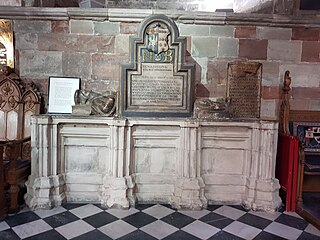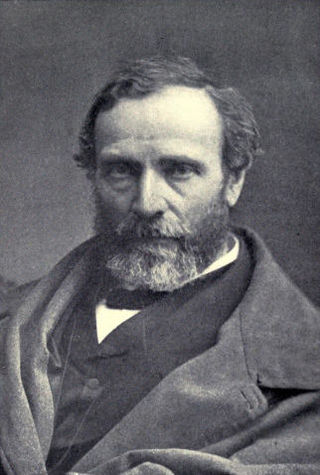Related Research Articles

The Honourable Society of Lincoln's Inn is one of the four Inns of Court in London to which barristers of England and Wales belong and where they are called to the Bar. Lincoln's Inn, along with the three other Inns of Court, is recognised as being one of the world's most prestigious professional bodies of judges and lawyers.
Thomas Lodge was an English writer and medical practitioner whose life spanned the Elizabethan and Jacobean periods.
Richard Stanyhurst (1547–1618) was an Anglo-Irish alchemist, translator, poet and historian, who was born in Dublin.
Robert Hayman was a poet, colonist and Proprietary Governor of Bristol's Hope colony in Newfoundland.

Nicholas Bullingham was an English cleric who became the Bishop of Lincoln and Bishop of Worcester.

Sir Edmund Plowden was a distinguished English lawyer, legal scholar and theorist during the late Tudor period.

Arthur Hobhouse, 1st Baron Hobhouse, was an English lawyer and judge.
Sir Roger Cholmeley was Lord Chief Justice of the Court of King's Bench from 1552 to 1553. From 1535 to 1545 he was Recorder of London and served in the House of Commons. He is possibly best remembered for his endowment to found a free grammar school, Highgate School, at London.

Sir William Cordell of Melford Hall in the parish of Long Melford, Suffolk, was an English lawyer, landowner, administrator and politician who held high offices under both the Catholic Queen Mary I and the Protestant Queen Elizabeth I.
Nominate reports, also known as nominative reports, named reports and private reports, is a legal term from common-law jurisdictions referring to the various published collections of reports of English cases in various courts from the Middle Ages to the 1860s, when law reporting was officially taken over by the Incorporated Council of Law Reporting, for example Edmund F. Moore's Reports of Cases Heard and Determined by the Judicial Committee and the Lords of His Majesty's most Honourable Privy Council on Appeal from the Supreme and Sudder Dewanny Courts in the East Indies published in London from 1837 to 1873, referred to as Moore's Indian Appeals and cited for example as: Moofti Mohummud Ubdoollah v. Baboo Mootechund 1 M.I.A. 383.

The Chase Court refers to the Supreme Court of the United States from 1864 to 1873, when Salmon P. Chase served as the sixth Chief Justice of the United States. Chase succeeded Roger Taney as Chief Justice after the latter's death. Appointed by President Abraham Lincoln, Chase served as Chief Justice until his death, at which point Morrison Waite was nominated and confirmed as his successor.
Robert Lougher was a Welsh clergyman, lawyer and politician who sat in the House of Commons in 1572. He was twice Principal of New Inn Hall, Oxford.
Nicholas Statham was an English lawyer, known as a legal writer.
Edmund Bunny (1540–1619) was an Anglican churchman of Calvinist views.
Michael Dalton (1564–1644) was an English barrister and legal writer, author of two works well known in his time.

Charles Viner was an English jurist, known as the author of Viner's Abridgment, and the benefactor of the Vinerian chair and the Vinerian Scholarship at the University of Oxford.
Ans du Roy Richard II., hors des les Abridgments de Statham, Fitzherbert et Brooke is the title of a collection of law reports, compiled by Richard Bellewe, of cases decided between approximately 1378 and 1400. For the purpose of citation their name may be abbreviated to "Bel". They are reprinted in volume 72 of the English Reports.
Ascuns novel cases de le ans et temps le Roy H. VIII., Edv. VI, and la Roygne Mary. Escrie ex la graund Abridgment, compose per Sir Robert Brooke, Chivaler, &c., la, disperse en les Titles; mes icy collect sub ans is the title of a collection of law reports, compiled by Richard Bellewe, of cases decided between approximately 1515 and 1558. They are reprinted in volume 73 of the English Reports.
Richard Bligh (1780-1838), chancery barrister, son of John Bligh and a cousin of Admiral William Bligh, was educated at Westminster School and Trinity College, Cambridge. He graduated B.A. in 1803 and M.A. in 1806. He was called to the bar by the Society of the Inner Temple on 1 May 1807 and was admitted to the Society of Lincoln's Inn on 17 November 1826. He became an equity draftsman at the chancery bar. He was a hard worker, and had a fair amount of practice in his profession; but a considerable amount of his time was taken up by reporting in the House of Lords, in which business he was engaged for several years.
Owen Hood Phillips, QC was a British jurist. He was Lady Barber Professor of Jurisprudence at the University of Birmingham and Dean of the Faculty of Law, Vice-Principal and Pro-Vice-Chancellor of that university.
References
- "Bellewe, Richard". Oxford Dictionary of National Biography (online ed.). Oxford University Press. doi:10.1093/ref:odnb/2054.(Subscription or UK public library membership required.)
- ↑ Winfield, Percy H. The Chief Sources of English Legal History. Harvard University Press. 1925. Reprinted by Beard Books. 2000. Page 234.
- ↑ Rigg, James McMullen (1885). . In Stephen, Leslie (ed.). Dictionary of National Biography . Vol. 4. London: Smith, Elder & Co. p. 193.
- ↑ Reprint of "Les ans du roy Richard le Second" by Steven and Haynes, 1869. Advertisement dated September 1869. Digitised copy from Google Books.